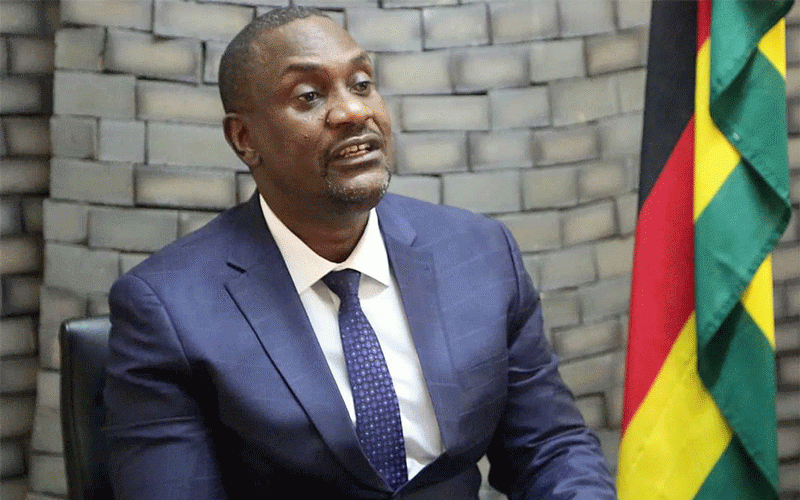
THE US government’s switch from a two-decade long Zimbabwe Democracy and Economic Recovery Act (Zidera) sanctions framework to the Global Magnitsky programme is targeted at squeezing President Emmerson Mnangagwa, Zanu PF and government associates, analysts said.
Under the Global Magnitsky, sanctions programme Mnangagwa and 10 other individuals, including his wife Auxilia and vice president Constantino Chiwenga were designated.
Other individuals appearing on the new list include defence minister Oppah Muchinguri, Central Intelligence Organisation deputy director Walter Tapfumaneyi, commissioner general of the Zimbabwe Republic Police Godwin Matanga and his deputy, Stephen Mutamba.
Owen Ncube, the Minister of State for Midlands Provincial Affairs and Devolution, was also slapped with the sanctions.
Ncube is also a former State security minister.
Mnangagwa was already under sanctions through the Zidera framework.
But he was slapped with the fresh order for what the US described as “corrupt activities, in particular those relating to gold and diamond smuggling networks”.
Three business entities were also targeted for their perceived role in ‘fuelling corruption’, according to the new measures.
- Corruption Watch: Get scared, 2023 is coming
- Corruption Watch: Get scared, 2023 is coming
- Letters: Ensuring Africa’s food security through availability of quality seeds
- Is military's involvement in politics compatible with democracy?
Keep Reading
These include Sakunda Holdings, its subsidiary Fossil Agro and Fossil Contracting, which is controlled by businessman Obey Chimuka.
Businessman, Kudakwashe Tagwirei, his wife Sandra Mupunga and Chimuka were transferred to the new list of targeted individuals under the latest raft of measures.
The measures include travel bans and asset freezes within the US.
Following promulgation of the fresh measures, government slammed them, saying the Global Magnitsky regime was a ‘perpetuation of an illegality against a sovereign State’.
Stephen Chan, a professor of world politics at the University of London, told the Independent that Washington’s new measures against Harare were “sharper”.
With the introduction of fresh sanctions, Chan was pessimistic on the outlook, saying frosty relations between Washington and Harare were likely to worsen.
“Sanctions were essentially symbolic,” he told the Independent.
“They remain so, but they are now sharper and more specifically and selectively targeted. It is doubtful that relations between Zimbabwe and the US will improve significantly,” he said.
Commenting on how the new measures will affect economic ties between Zimbabwe and the US, Chan said the fresh sanctions will not close windows of potential business cooperation.
“The US needs nothing from Zimbabwe,” he said.
“But the US government will not stop US corporations from trading with Zimbabwe. And the US cannot prevent the International Monetary Fund from dealing with Zimbabwe,” he added.
With Zimbabwe accusing the US’ sanctions for bleeding its economy, Prosper Chitambara, chief economist at the Labour and Economic Development Research Institute of Zimbabwe, hinted Washington may be admitting that its embargo has had dire ramifications - based on how its measures were evolving.
“I think it is an admission that sanctions could have had an adverse effect on the economy,” Chitambara said.
“In talks with a number of business people, we have seen how sanctions could have affected trade between Zimbabwean companies and companies in the US and the West. It has made it more difficult and more expensive to trade with the US and the West,” he added.
“Obviously, that then affects the economy and ordinary citizens. We have had stories from bankers where local banks have lost international correspondent banking relationships (as a result of sanctions) … I think there is an admission that sanctions have contributed to some of the economic challenges the economy is facing.”
Chitambara concurred with Chan that the latest round of sanctions would further soil tainted relations between Harare and Washington.
“Definitely, the new round of sanctions targeted at certain individuals and entities affect the re-engagement drive with the US. I think we have also seen that the US embassy has pulled out of the structured dialogue platform processes, so I think this could complicate our reengagement especially with the US,” Chitamba added.
The US first imposed sanctions against Zimbabwe in 2001, which have been repeatedly renewed to date over what it claims is Harare’s deteriorating human rights situation.
At that time the sanctions were first imposed, Zimbabwe, then led by the late former president Robert Mugabe, was rolling out the fast-track land redistribution exercise targeted at white farmers who possessed vast tracts of farmland.
Zidera, which was passed by the US Congress in 2001, outlined reforms the southern African country should follow for sanctions to be lifted.
Zimbabwe has also been under a European Union embargo.
In 2013, government said up to US$42 billion had been wiped out as a result of embargoes.






